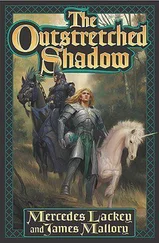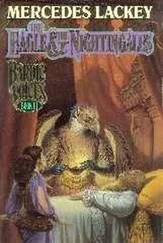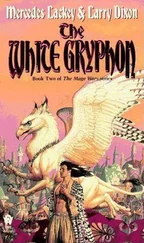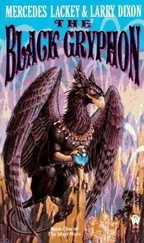But this was not a social visit—this was Magician to Magician, and as such, did not fall under any of the chapters in Marina’s book of etiquette.
I did look, though, she thought whimsically, I tried to find even a mention of Magician to Magician protocol But there wasn’t anything there on the subject. So the “Young Lady’s Compleate Guide to Manners” isn’t as complete a guide as it claims to be.
The hunter trotted along briskly, while she was engrossed in thought. Etiquette aside, she needed to be very careful with what she did and did not say and do around this man. After all, she knew nothing about him, except that he had a good reputation in the village. Now, that was no bad thing; the village saw a great deal and gossiped about it widely.
But that didn’t mean that the village saw everything; the fact that he hadn’t betrayed himself as an Earth Master proved that.
Magicians were only human, as Elizabeth had been at pains to point out. They could be brave—or cowards. Noble—or petty. Altruistic—or selfish.
Marina had a long talk with Sally over breakfast; she knew already that Doctor Pike had more than charity patients—he catered to ladies of wealth and privilege who suffered from nervous exhaustion. Treatment for these special patients amounted to a bit of cosseting, flattering attention to their symptoms, some nostrums, and being left undisturbed—or pampered—as their whims dictated. And these women were probably paying a great deal of money to have that much attention given them by a sympathetic, handsome, young physician. So, whatever else Dr. Pike was, he was clearly willing to pander to them in order to get those handsome fees.
Not the altogether altruistic and idealistic physician he might have seemed from his treatment of the runaway girl.
Caution is in order, I think, in how much I believe about him. And caution in how much I tell him about myself. But if nothing else, I will make arrangements to help him with that girl.
The hunter’s head bobbed with effort as he climbed a hill; at a walk, not a trot; this was a steep bit of lane. She could just imagine the hay-wains laboring up here—the poor horses straining in their harness as they tried to get themselves and their load up to the top of this rise. Add to that the rocks and ruts, what a hideous climb it must be.
Or perhaps not; it wasn’t quite wide enough for a loaded wain, which must have relieved quite a few farm horses over the years.
And then they reached the top; the horse paused for a breath, and she reined him in, looking around for a moment. And paused, arrested by the view.
On her left, the hill dropped steeply away from the lane, giving her an unparalleled view of the countryside. The top of the hedge along the edge of that field was actually level with her ankle, the slope dropping off steeply at the very edge of the lane and continuing that way for yards. The hills and valley spread out below her in a snow-covered panorama, ending in distant, misty hills, higher than the rest, blue-gray and fading into the clouds on the horizon, that might be the edge of Exmoor.
Now, it was to be admitted that no one traveled from across the world—or even across England—to see the views of Devon countryside. There was nothing spectacular here in front of her, no snow-covered peaks, no wild cliffs and crashing waves, no great canyons, wilderness valleys. But spectacle was not always what the heart craved, although the soul might feast on it. Sometimes you don’t want a feast. Sometimes you just want a cozy tea in front of the fire.
She rested her eyes on the fields below, irregularly-shaped patches of white bordered by the dark gray lines of the leafless hedges, like fuzzy charcoal lines on a pristine sheet of paper. The wavering lines were sometimes joined, and sometimes broken, by coppices of trees, the nearer looking exactly like Uncle Sebastian’s pencil-sketches of winter trees, the farther blurred by distance into patches of gray haze, containing the occasional green lance-head of a conifer. Some of those white patches of ground held tiny red-brown cattle, scarcely seeming to move; presumably some held sheep, although it was difficult to make out the white-on-white blobs at any distance. Sheep on the high ground, cattle on the low, that was the rule. Farmhouses rose up out of the snow, shielded Protectively by more trees, looking for all the world, with their thatched roofs covered in snow, and their walls of pale cob or gray stone, as if they had grown up out of the landscape. Thin trails of white smoke rose in the air from chimneys, and in the far distance, barely discernible, was the village, a set of miniature toy-buildings identifiable by the square Gothic tower of St. Peter’s rising in their midst.
There was a faint scent of wood smoke from those far-off hearth fires; a biting chill to the air that warned of colder winds to come and a scent of ice that suggested she might want to be indoors by nightfall. The blazing sun of early morning was gone; muted by high mare’s-tail clouds with lower, puffier clouds moving in on the wind.
Jackdaws shouted metallically at one another from two coppices, and a male starling somewhere nearby pretended it was spring with an outpouring of mimicked song. So had this valley looked for the last two hundred years. So, probably, would it look for the next hundred, with only minor additions.
It slumbered now, beneath its coverlet of snow, but Marina did not need to close her eyes to know how it would look in the spring when it came to vivid life. Green—green and honey-brown, but mostly green—would be the colors of the landscape. The vivid green of the fields would be bisected by the dark-green lines of the hedges; the farmhouses would disappear altogether behind their screening of trees—or would, at most, look like mounds of old hay left behind after harvest beneath the graying thatch. When walls showed at all, the cob would glow with the sunlight, the stone pick up the same mellow warmth. The hillside fields would be dotted with the white puffs of sheep, the valley fields holding the red-brown shapes of cattle moving through the knee-deep grass, heads down, intent on browsing as though the grass were going to vanish in the next instant. And everywhere would be the song of water.
For although there were few lakes, and fewer rivers, this was a land of a thousand little streams, all gone silent now under the snow, but ready to burst out as soon as spring came. They burbled up out of the hills, they babbled their way across meadows, they chuckled along the lanes and laughed on their way to join the great rivers, the Tamar, the Taw, the Torridge, the Okement, the Exe.
And over and around the sound of the waters would be the songs of the birds—starling and lark, crow and wren, jackdaw and robin, bluetit and sparrow, nightingale, thrush—all of them daring each other to come encroach on a territory, shouting out love for a mate or desire for one. Between the songs of the waters and the birds would be the lowing of cattle, the bleating of sheep, and all the little homely sounds of farm and land made soft by distance.
The sky would be an impossible blue, gentle and misty, with white clouds fluffy as newly-washed fleeces sailing over the hills on their way to the next valley.
And the air would be soft with damp, full of the scent of green growing things, of moss and fern, and the sweet fragrance of fresh-cut grass and spring flowers. It would touch the cheek in a caress that would negate the knife-flick of winter’s wind, the unkindly wind that knew no softness but that of snow.
Marina heard all of these things in her memory, as she saw them in her mind’s eye, as she felt them, as sure as the ground beneath her horse’s hooves, his muscular, warm neck under her gloved hand. In all seasons, under all weathers, she knew this land, not so different from the place where she had grown up, after all—its waters flowed in her blood, its stones called to her bones. Not sudden, but slow and powerful, she felt that call, and the answer within her, to protect, to serve, and above all, to cleanse.
Читать дальше












